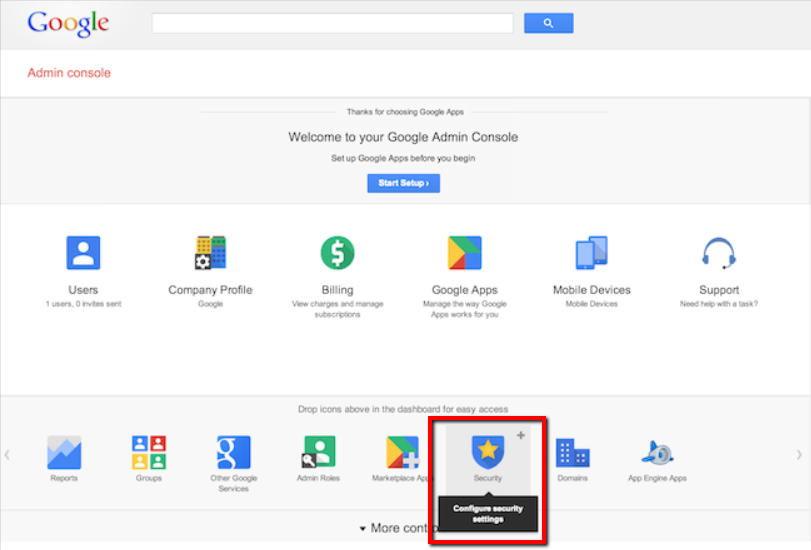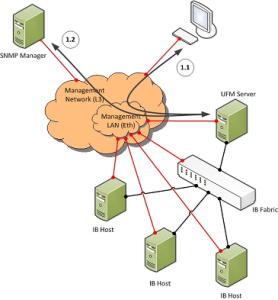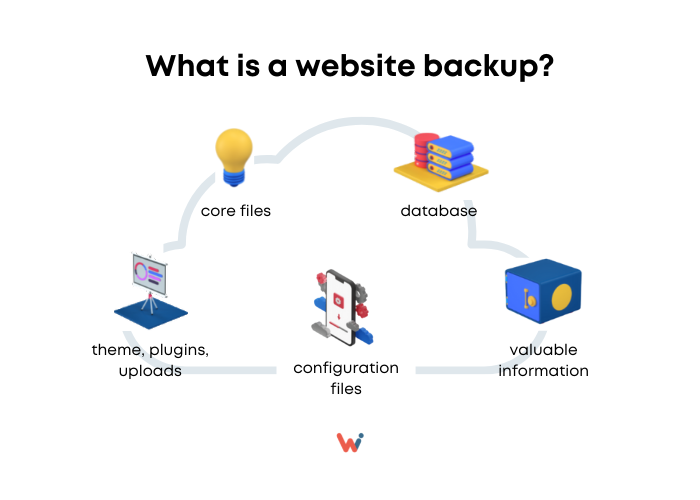
A host is a computer which provides services to other machines on a network. The host is often a mainframe computing device that connects to other workstations to provide service to the network's programs. In Internet lingo, it is also called a large server. In both cases, a host is an extremely powerful device or program that provides service to other programs or devices connected to a network.
Hosts may be any computer or device that communicates with other hosts within a network.
A host, also called a server, is a computer that connects to a network and provides services to other devices. Its functions can include data transfer and application programming. In network architecture, hosts are either physical or virtual devices. There may be routers or switches in the network.
A network is a group of devices that can communicate with one another using an IP address. Each device is assigned an IP address and has specific software. This allows hostnames, which can be translated into IP address, to be easily found by other devices and networks. An entire network may include hubs, switches routers, boosters of WiFi, and other devices.

Servers provide services to programs connected to the network
Servers can be described as computer systems that provide services for other computers or programs connected to a network. They typically run a server operating system. This OS manages computers' resources and handles all server-related tasks. These systems are more powerful and feature-rich than regular computers. They can also be used for other purposes.
Servers transmit information to other computers such as websites or files. They are vital components of any information-technology infrastructure. There are many different types of servers. They vary in size, shape and capabilities.
Distributed hosting is a form of distributed hosting
Distributed Hosting is a form of web hosting that allows many websites to share a single server. This is an alternative to each website owner having to purchase their own server. Web hosts host their servers within data centers. Subscriber websites don't have to maintain their physical servers. Instead, users input their URL into their web browser, which translates it into an IP address and sends it to the server. The web host hosts the servers and leases them to their users.
InterPlanetary File System (IPFS), offers new distributed web hosting. This network-based protocol lets users share content in distributed systems such as shared databases. IPFS uses content address to uniquely identify each file in a global namedspace.

Cloud hosting is a newer type of hosting
Cloud hosting is a type or hosting service where you can pay as little or as many as you'd like. This type hosting is perfect for websites that have high traffic but need flexible pricing. This hosting is safer than traditional servers and allows for advanced monitoring and firewalls. It is also more flexible in its pricing than traditional web hosting.
Cloud hosting is a way to divide a physical server into multiple virtual machines. These virtual servers then link together to create one network for hosting websites. This hosting option is also known by the acronym cluster server hosting. This hosting is more expensive that shared hosting but has many benefits. For example, the architecture of cloud hosting makes it easy to anticipate sudden traffic surges, and the virtual servers are constantly loaded with traffic without overloading the physical servers. Some websites require more security than others. Cloud Hosting allows you to adapt your web hosting plan to suit your needs.
FAQ
How Much Does it Cost to Create an Ecommerce Website?
This will depend on whether you are using a platform or a freelancer. eCommerce websites start at about $1,000.
However, once you decide on a platform, you can expect to pay anywhere between $500 and $10,000.
The average cost of a template will not exceed $5,000. This includes any customizations required to reflect your brand.
What is a website static?
A static website can be hosted anywhere, including GitHub Pages, Amazon S3, Google Cloud Storage, Windows Azure Blob storage, Rackspace Cloud Files, Dreamhost, Media Temple, and others. You can also deploy static sites to any platform that uses PHP, such WordPress, Drupal Joomla! Magento PrestaShop.
Static web pages are usually easier to maintain because they're not constantly sending requests back and forth between servers. A static web page loads faster as there is no need to forward requests back and forth among servers. For these reasons, static web pages are often better for smaller companies that don't have the time or resources to manage a website properly.
Do I have to use a template?
Yes! Yes! Many people use pre-built frameworks or templates when creating websites. These templates contain all the code needed to display information on your page.
Some of the most popular templates include:
WordPress - one of the most popular CMSes
Joomla - Joomla is another popular open-source CMS
Drupal - An enterprise-level solution for large companies
Expression Engine - Yahoo's proprietary CMS
Each platform offers hundreds of templates. Finding the right template should be simple.
Statistics
- At this point, it's important to note that just because a web trend is current, it doesn't mean it's necessarily right for you.48% of people cite design as the most important factor of a website, (websitebuilderexpert.com)
- It enables you to sell your music directly on your website and keep 100% of the profits. (wix.com)
- Studies show that 77% of satisfied customers will recommend your business or service to a friend after having a positive experience. (wix.com)
- It's estimated that chatbots could reduce this by 30%. Gone are the days when chatbots were mere gimmicks – now, they're becoming ever more essential to customer-facing services. (websitebuilderexpert.com)
- When choosing your website color scheme, a general rule is to limit yourself to three shades: one primary color (60% of the mix), one secondary color (30%), and one accent color (10%). (wix.com)
External Links
How To
How can I choose the right CMS for me?
There are two types of Content Management System. Web Designers can choose between static HTML or dynamic CMS. WordPress is the most widely used CMS. Joomla! is an excellent CMS for making your site professional and well-organized. The powerful, open-source CMS Joomla allows you to build any website design with no coding skills. It's easy and quick to install. Joomla includes thousands of templates and extensions so you don't have to hire a programmer to build your site. Joomla is easy to use and free to download. Joomla is a great choice for your project.
Joomla is an excellent tool for managing all aspects of your website. Joomla offers many features, such as a drag and drop editor, multiple templates support, image manager blog management, news feed, eCommerce, and a blog management. Joomla is a great choice for anyone looking to create a website quickly and without having to learn how to code.
Joomla works on almost all devices. This makes it possible to easily develop websites for various platforms.
There are many reasons Joomla is preferred over WordPress. There are many reasons people prefer Joomla over WordPress.
-
Joomla is Open Source Software
-
It's easy to set up and configure
-
Over 2,000 ready-made Templates and Extensions
-
You can download and use the software free of charge
-
All Devices are supported
-
Powerful Features
-
Excellent Support Community
-
Very Secure
-
Flexible
-
Highly customizable
-
Multi-Lingual
-
SEO Friendly
-
Responsive
-
Social Media Integration
-
Mobile Optimized